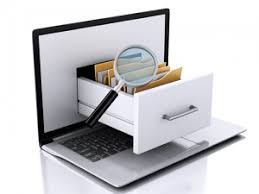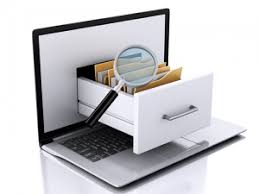Data Security - Ten Easy Ways To Keep You Safe
Does the idea of data security and your confidential business data being accessed by users around the world who aren't your employees scare you? Did...

 Think about your home. You have locks on your doors to keep prowlers out. You may have an alarm system and cameras to alert the authorities and document anything that may happen if they get past those locked doors. Imagine for a moment that these bad guys get past your locks, cameras and alarm. Where will they start to look for valuables? Easily accessible places such as drawers, cabinets, wallets and purses, and other unsecured areas where you might have stuff. You also likely have all of your important papers locked away in a lock box, safe or cabinet. So while they may get some cash and credit cards, your great-grandmother's four carat diamond heirloom pendant is safe.
Think about your home. You have locks on your doors to keep prowlers out. You may have an alarm system and cameras to alert the authorities and document anything that may happen if they get past those locked doors. Imagine for a moment that these bad guys get past your locks, cameras and alarm. Where will they start to look for valuables? Easily accessible places such as drawers, cabinets, wallets and purses, and other unsecured areas where you might have stuff. You also likely have all of your important papers locked away in a lock box, safe or cabinet. So while they may get some cash and credit cards, your great-grandmother's four carat diamond heirloom pendant is safe.
Now imagine this same exercise, but at your business. Most times when thieves break into businesses, while they are looking for cash, electronics and such, they're also looking for data. Because with data, they can get a whole lot more cash. Imagine they get your payroll information, your financial account information or your client's financial information. The amount of money they can glean from these sources is way bigger than the cash you have on hand.
In many ways, we treat our businesses as we do our homes. We protect cash and physical valuables, but we often forget about other areas where information can be used for gain by criminals. Think of how many file cabinets in your office are left unlocked each and every day and night. Those cabinets are FILLED with all sorts of information that could make a crook a boatload of cash if he knows what he's doing. And THIS is why your office documents are a big security risk. Outside of locking every file cabinet with paper in it and ensuring nobody can break into them, the best way to handle document security is through digitization.
How do I digitize my documents?
The move from paper to electronic documents is sometimes a daunting thought. The drawers and boxes full of paper documents may seem insurmountable. With a few tips, you can make the job easier to handle.
What are the benefits of digital documents?
With digital documents, there are so many improvements you'll be able to see in a very short time. Here are just a few.
So while many of the threats to businesses comes from the cybersecurity world, there is also a whole host of land mines in your paper office documents if they fall into the wrong hands. So add another layer of security to your business with digital documents and document management. You can never have too much protection for your business assets and valuable data.

Does the idea of data security and your confidential business data being accessed by users around the world who aren't your employees scare you? Did...

Think about what you do on a daily basis with your MFP. You make copies; you print; you might even scan a document or two. But did you know that the...

Does your office feel like it's drowning in paperwork? Are you constantly searching for lost documents, frustrated by inefficient workflows, and...